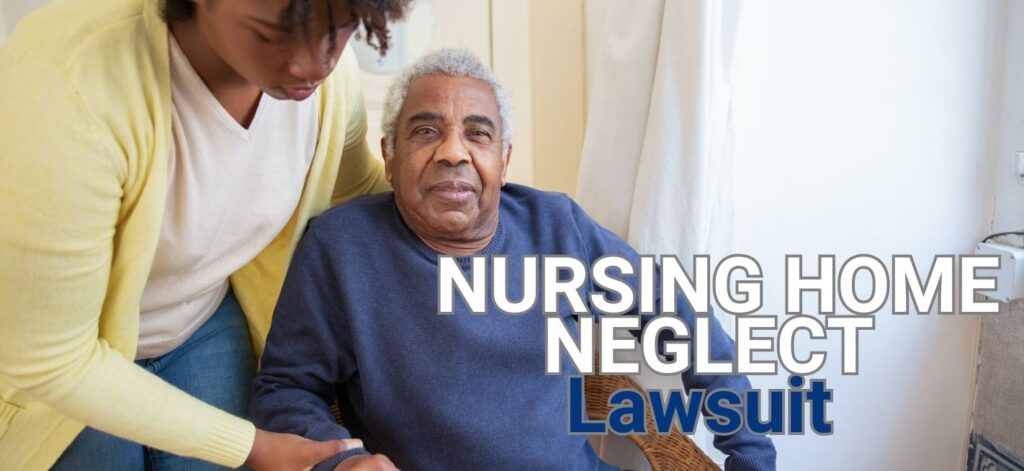Nursing Home Neglect Lawsuit in 2024 | A Guide for Families
Many families rely on nursing homes to care for their elderly and disabled loved ones around the clock. Sadly, abuse and neglect happen in these facilities. If your loved one is being mistreated in a nursing home, act immediately. At Ethen Ostroff Law, we understand the emotional and legal challenges families face when they discover their loved ones have suffered because of negligence in nursing homes. That’s why we’ve created this comprehensive guide to shed light on the critical aspects of nursing home neglect lawsuit and provide a roadmap to legal recourse. Learn how our nursing home abuse attorney can assist you in your quest for justice and healing.
Choosing a Nursing Home
Here are some pointers to help you choose the best nursing home for your loved one:
- Identify your needs: Consider what is important to you and your loved one, such as nursing care, meals, physical therapy, a religious connection, hospice care, or special care units for dementia patients.
- Call different nursing homes: Call each location on your list. Inquire about how many people live there and how much it costs. Learn more about waiting lists.
- Compare the standards of the nursing homes you are considering: Use the five-star quality rating system of the Center for Medicare and Medicaid. Nursing Home Compare on Medicare.gov has information on health inspections, nursing home staffing, and quality measures.
- Talk to people: Discover the nursing homes friends, family, social workers, and religious organizations recommend. Consult with your healthcare providers to find out which they believe provides excellent care.
- Visit the facility: Schedule a meeting with the director and the nursing director. When visiting a nursing home, consider the Medicare Nursing Home Checklist.
- Carefully read your contract: Once you select the nursing home, examine the contract carefully to understand the terms and conditions of your loved one’s care.
Nursing Home Care
Nursing homes are facilities where people who can’t live independently receive medical and personal care. These places have trained healthcare professionals like nurses and assistants available all the time to help with daily tasks and monitor medical conditions. Many families rely on nursing homes for specialized care their elderly relatives require that they cannot provide at home. Nursing homes ensure elderly individuals receive necessary medical treatment and assistance.

Top Nursing Homes in the United States
The top nursing homes in the United States are:
- Hanceville Nursing & Rehab Center, Inc. in Hanceville, AL
- Park Avenue Health & Rehabilitation Center in Tucson, AZ
- Ararat Home of Los Angeles in Mission Hills, CA
- Colorado State Veterans Home At Fitzsimons in Aurora, CO
- River Garden Hebrew Home in Jacksonville, FL
- A.G. Rhodes – Wesley Woods in Atlanta, GA
- Burgess Square Healthcare & Rehab Centre in Westmont, IL
- Lutheran Life Villages – The Village at Anthony Boulevard in Fort Wayne, IN
- Our Lady of the Lake – St Clare Manor in Baton Rouge, LA
- CareOne at Holyoke in Holyoke, MA
- Autumn Lake Healthcare at Crofton in Crofton, MD
- Tuscola County Medical Care Community in Caro, MI
- Mount Olivet Careview Home – Minneapolis in Minneapolis, MN
- Village Care Center at John Knox Village in Lees Summit, MO
- Abernethy Laurels in Newton, NC
- Hunterdon Care Center in Flemington, NJ
- Friendly Senior Living – Friendly Home in Rochester, NY
- Assumption Village in North Lima, OH
- The Glen at Willow Valley in Lancaster, PA
- NHC HealthCare – Lexington in West Columbia, SC
- Memphis Jewish Home & Rehab in Cordova, TN
- Landmark of Plano in Plano, TX
- Centra Health – Guggenheimer Health & Rehabilitation Center in Lynchburg, VA
- Caroline Kline Galland Home in Seattle, WA
- Brookside Care Center in Kenosha, WI
Nursing Home Neglect: Get Compensation for Missed Diagnoses
In nursing homes, particularly in cases of failure to diagnose, residents face significant risks. These facilities, often catering to elderly individuals with underlying medical conditions, demand meticulous care. Unfortunately, some nursing homes falter, neglecting to offer the required attention and oversight. This nursing home medical neglect can lead to undetected medical issues, resulting in severe, sometimes fatal outcomes. Medical neglect in nursing homes cannot be ignored. If you or a loved one has suffered because of this, seeking compensation is imperative. You or your loved one deserves the highest standard of care. Wondering what neglect in a nursing home entails or how to prove nursing home negligence? Call Ethen Ostroff Law.
What are the legal standards for nursing home care?
Federal and state laws set legal standards for nursing home care. Here are the main ones:
- Accurate records: Detailed and easily accessible records about residents’ health must be maintained.
- Adequate staffing: Nursing homes must have enough staff to provide proper care.
- Compliance for funding: Nursing homes must meet these standards to receive Medicaid or Medicare payments.
- Personal care: Nursing homes must ensure residents have clean skin, clothes, and linens. They should provide necessary personal care, like bathing and grooming.
- Personalized care plans: Each resident must have a tailored care plan detailing their needs and how they’ll be addressed.
- Pharmaceutical services: Nursing homes must provide necessary medications to residents.
- Physical and mental well-being: Nursing homes must maintain residents’ best possible physical and mental health without unnecessary decline.
- Protection from abuse: Residents must be free from abuse, neglect, and exploitation.
- Resident choices: Residents have the right to choose their activities, schedules, and healthcare options.
- Resident rights: Residents must be able to engage in social activities, communicate freely, make care decisions, and complain without fear. They must be given privacy and respect.
Nursing Home Abuse
Nursing home abuse takes many forms, including emotional or mental abuse, financial exploitation, sexual abuse, neglect, and physical abuse. Physical abuse can involve slapping, hitting, or restraining residents. Emotional or mental abuse can include threats or verbal abuse. Sexual abuse can include any unwanted sexual advances. Financial exploitation can involve the misuse or theft of a resident’s finances. Neglect occurs when residents do not get a reasonable level of care.
Neglect in Nursing Homes
Nursing home neglect occurs when a resident does not receive the required care, attention, or services from nursing home staff or administrators, whether on purpose or not. Residents may suffer harm, injury, or emotional distress if proper care is not provided. Regrettably, neglect is a common problem in American nursing homes and care facilities. Cases of elder abuse and neglect often go unreported.

Causes of Nursing Home Neglect
Nursing home neglect can arise from various factors:
- Inadequate staffing: Overworked employees struggle to provide proper care, impacting residents’ health and safety.
- Lack of awareness: Many people are unaware of neglect signs or how to prevent it, leaving residents vulnerable.
- Resource limitations: Nursing homes lacking resources, professional management, and supervision find it challenging to offer adequate care, perpetuating neglect and abuse.
- Negligent hiring: Improper screening of employees leads to hiring unqualified or abusive staff, creating a harmful environment.
- Personal caregiver issues: Caregivers with burnout, mental health problems, stress, or abuse history may justify neglectful actions.
- Poor training: Some staff lack necessary training, impacting their ability to care for residents effectively.
- Understaffing: Insufficient staff means less attention for each resident, increasing the risk of neglect.
Forms of Nursing Home Neglect
Knowing the forms of nursing home neglect is crucial to recognizing signs and taking appropriate action to ensure the safety of vulnerable residents. Here’s an overview of the forms of nursing home neglect:
- Emotional neglect: Ignoring or isolating residents leads to emotional distress, depression, or withdrawal from social interactions.
- Medical neglect: Failure to administer medications correctly, provide necessary medical treatments, or respond to medical emergencies promptly.
- Personal hygiene neglect: Neglecting the resident’s personal hygiene needs, such as bathing, grooming, changing clothes, or maintaining oral health.
- Physical neglect: Failure to provide proper hygiene, nutrition, or medical care results in issues like bedsores, malnutrition, dehydration, or untreated medical conditions.
- Safety neglect: Ignoring safety hazards within the facility can lead to accidents such as slips and falls or failing to assist residents with mobility issues.
- Social or recreational neglect: Failing to engage residents in social activities, recreational programs, or exercises leads to social isolation and a decline in physical and mental health.
Signs of Nursing Home Neglect
Nursing home staff or management may engage in improper behavior that leads to neglect. Warning signs of neglect in nursing homes include:
- Hazardous living conditions: Neglectful nursing homes may not provide residents with safe living conditions, leading to falls, injuries, and other health problems.
- Loss or lack of mobility: Neglectful nursing homes may leave residents sitting in their beds or wheelchairs for long periods, causing them to develop mobility issues. When residents sit in wheelchairs or lay in their beds without being repositioned, pressure ulcers can quickly progress into stage 4 bedsores.
- Poor appearance and general cleanliness: Neglectful nursing homes may not provide residents with clean clothes or linens, leading to unsanitary living conditions.
- Poor resident hygiene: Neglectful nursing homes may not provide residents with proper hygiene, like bathing, changing clothes, and grooming, leading to infections, bedsores, and other health problems.
- Psychological issues: Neglect can cause several emotional issues for elderly residents. They may become afraid of the caregivers, angry or resentful, distant from friends and family, reluctant to talk about the issues they face, and even suffer from depression.
- Signs of poor nutrition: Neglectful nursing homes may not provide residents with enough food or water, leading to malnutrition and dehydration. Signs of inadequate nutrition include fatigue, unexplained weight loss, and weakness.
- Soiled clothes or linens: Neglectful nursing homes may not change residents’ clothes or linens regularly, leading to unsanitary living conditions.
- Unexplained injuries or illnesses: Neglectful nursing homes may leave residents’ injuries or illnesses untreated.
- Unsanitary or unclean room: Neglectful nursing homes may not clean residents’ rooms regularly, leading to unsanitary living conditions.

Steps to Take If a Loved One Is Neglected
Neglect in a nursing home is never acceptable. Follow these measures to protect your loved one and hold the nursing facility accountable:
- Report the neglect: Report the neglect to the nursing home administrator, state health department, or local law enforcement. Document the details of the neglect and any injuries or health concerns.
- Seek medical attention: Get your loved one the medical care he or she requires right away. Keep records of all medical treatments and diagnoses related to the neglect.
- Document everything: Keep detailed records of conversations or interactions with the authorities, medical providers, and nursing home staff. Take photos of any injuries or evidence of neglect.
- Consult with a nursing home neglect attorney: Consult a lawyer who focuses on nursing home neglect cases and can help you seek justice and compensation for your loved one.
- Consider moving your loved one: Move your loved one to another nursing home or care facility where he or she receives proper care.
Report Nursing Home Neglect
To report nursing home neglect, follow these steps:
- Consult a lawyer: Speak with a nursing home abuse lawyer for legal guidance.
- Contact Adult Protective Services (APS): Report abuse or neglect of adults aged 65 or older, or those with disabilities, to APS. Reports can be made confidentially via phone or online.
- Call law enforcement: In emergencies, dial 911 or contact local law enforcement.
- Notify nursing home administrator: Share your concerns with the nursing home administrator. They might address the issue internally.
- Contact state regulatory agency: Report neglect to the appropriate state agency regulating nursing homes. File complaints online or by phone.
- For Pennsylvania residents:
- Pennsylvania Department of Health: File complaints by phone, online, or email to c-ncomplai@pa.gov.
- Ombudsman Program: Report abuse or neglect by calling 717-783-8975 or 1-800-490-8505.
What information should be included when reporting nursing home neglect?
When reporting nursing home neglect, provide these details:
- Nursing home’s name and address.
- Resident’s name.
- Date and time of neglect.
- Detailed description of neglect and injuries.
- Names of involved staff.
- Witness names and contacts.
- Any evidence like photos or records.
- Your contact information: name, phone, and email.
Legal Implications of Nursing Home Neglect
Nursing home neglect can lead to serious legal consequences for the facility and its staff, including:
- Criminal charges: Neglect may be treated as a crime, leading to charges against the nursing home or its employees.
- Damages: Nursing home neglect lawsuits can claim compensatory, punitive, and wrongful death damages, along with attorney’s fees. The exact damages depend on the case and state laws.
- Lawsuits: Victims or their families can sue the nursing home for neglect, holding them accountable for inadequate care.
- Regulatory action: Neglectful nursing homes might face fines, license revocation, or closure as regulatory consequences.
- Reporting obligations: Nursing homes must report suspected neglect or abuse. Failure to do so can result in fines or penalties.
Reasons to Take Legal Action for Nursing Home Neglect
If you suspect neglect in a nursing home, pursuing legal action can be important for several reasons:
- Financial compensation: Legal action can help recover costs for medical expenses, pain, suffering, and other damages your loved one experienced.
- Justice: A neglect lawsuit holds the nursing home responsible, offering closure and justice for your family and your loved one.
- Peace of mind: Taking legal steps ensures your loved one’s rights are protected, providing peace of mind for your family.
- Protect others: Holding the nursing home accountable can lead to policy changes, preventing similar incidents and safeguarding other residents.
- Raise awareness: Filing a lawsuit highlights the issue, making others aware of neglect signs and encouraging them to protect their loved ones.
What are the different types of nursing home neglect that can be sued for?
Different types of nursing home neglect that can lead to lawsuits include:
- Elder abandonment: When a nursing home neglects a resident’s serious health needs, not providing necessary medical attention.
- Medical neglect: When a nursing home fails to provide proper medical care, causing harm. Examples include medication errors and a lack of necessary treatments.
- Neglect of basic needs: When a nursing home fails to provide a resident’s basic needs like food, shelter, and water, leading to harm. For example, malnutrition and unsanitary conditions.
- Neglect of personal hygiene: When a resident doesn’t receive proper personal care, it causes harm. Examples include lack of bathing and clean bedding.
- Self-neglect: When a resident can’t care for themselves due to limitations and the nursing home doesn’t provide necessary support.
- Social or emotional neglect: When emotional care is lacking, it causes harm. Examples include isolation and a lack of social activities.
What are the legal grounds for filing a nursing home neglect lawsuit?
Legal grounds for filing a nursing home neglect lawsuit include:
- Breach of contract: If the nursing home fails to provide promised care outlined in the resident’s contract.
- Intentional harm: When a staff member intentionally harms a resident, like physical or sexual abuse, or financial exploitation.
- Medical malpractice: If a healthcare professional’s mistake harms a resident, such as medication errors or misdiagnosis.
- Negligence: When the nursing home fails to provide adequate care, it leads to harm. This includes inadequate staffing, lack of resources, and poor training.
- Violation of resident rights: If a nursing home violates a resident’s legal rights, like freedom from abuse and neglect.
The specific grounds depend on the case’s circumstances.
Who can file a lawsuit for nursing home neglect?
Here are the parties who can sue for nursing home neglect:
- The victim of neglect if he or she is still alive.
- The estate of the victim can file a wrongful death lawsuit against the nursing home if the neglect victim has died.
- Family members on behalf of the victim if the victim cannot file a lawsuit.
- Close friends if there are no family members.

Who can be sued for nursing home neglect?
People or groups who can be sued for nursing home neglect include:
- Individual employees: Those directly involved in neglect or abuse can be held responsible.
- The nursing home: The facility can be sued if it did not properly care for its residents.
- Third-party contractors: Companies like security firms can be held liable if they are responsible for the nursing home’s safety and security.
Can you sue a nursing home for neglect in Texas?
Yes, you can sue a nursing home for neglect in Texas. State law prohibits nursing home abuse and neglect. Victims can pursue a civil lawsuit to seek compensation for their emotional and physical suffering, along with the potential criminal charges resulting from neglect.
Potential Damages in Nursing Home Neglect Lawsuits
In nursing home neglect lawsuits, potential damages can vary based on the case and state laws. These damages may include:
- Attorney’s fees and costs: If the lawsuit succeeds, the plaintiff may recover their legal expenses.
- Compensatory damages: These cover losses like medical bills, pain, and lost wages, aiming to restore the victim to their pre-neglect state.
- Punitive damages: These punish the nursing home for negligence, deterring similar behavior. They are awarded in addition to compensatory damages and can be substantial.
- Wrongful death damages: If the neglect leads to death, the estate can file a lawsuit. Damages can include funeral expenses and compensation for loss of companionship.
What are the factors that determine the settlement amount?
The settlement amount in nursing home neglect cases varies based on specific factors. Here are the factors that influence the settlement amount:
- Age of the victim: Compensation may vary based on the victim’s age, with higher amounts for disabled children compared to elderly individuals.
- Availability of punitive damages: Awards for punitive damages, meant to punish the defendant, can affect the settlement amount.
- Cost of medical treatment: The cost of necessary medical treatment due to abuse or neglect impacts the settlement. Higher medical expenses can lead to a larger settlement.
- Jurisdiction: The location where the case is filed can influence the settlement.
- Legal precedent: Lawyers may consider previous similar cases in the area to determine fair compensation.
- Severity of injuries: The seriousness of the injuries directly affects the settlement. More severe injuries often result in higher nursing home neglect lawsuit settlements.
- Strength of evidence: The strength of the evidence presented in the case can also impact the settlement. Stronger evidence may lead to a higher settlement.
How to File a Lawsuit for Nursing Home Neglect
Filing a nursing home neglect lawsuit involves several crucial steps designed to ensure justice for the victim and hold the responsible parties accountable. Here’s a detailed guide on how to navigate this process:
- Consult an attorney: Work with a nursing home neglect attorney to understand your rights and legal options.
- Evaluate your case: Your attorney will assess the viability of your case.
- Gather evidence: Collect evidence of injuries resulting from neglect to support your case, like medical records, photos, and witness statements, guided by your attorney.
- Know the time limit: Understand the time limit for filing a lawsuit in your state, usually within three years or less.
- File a complaint: Your attorney will help you file a complaint outlining the allegations against the nursing home. The facility will receive the lawsuit and can respond.
- Settlement or trial: Your case will go to trial if settlement is impossible. You’ll present evidence and arguments to a judge or jury, who will decide the outcome.
Importance of Nursing Home Neglect Attorneys
Filing a lawsuit for nursing home neglect is complex and time-consuming. A nursing home neglect attorney provides essential support and expertise throughout the legal process. In what ways?
- Legal guidance: They offer advice on your rights and guide you through the complex legal process.
- Case investigation: Attorneys gather evidence, interview witnesses, and review records to build a strong case.
- Lawsuit filing: They handle all legal requirements, file lawsuits, and communicate with the nursing home and their attorneys.
- Settlement negotiation: Attorneys can negotiate with the nursing home or their insurance for an out-of-court settlement, explaining the pros and cons.
- Court representation: They can defend your rights and argue your case in court.
- Maximize compensation: Attorneys help calculate damages like medical expenses and lost wages, ensuring you receive the compensation you deserve.
What Sets Ethen Ostroff Law Apart
Nursing home neglect poses a grave threat to the health and happiness of elderly residents. Families must remain watchful, spotting signs of neglect and acting swiftly if they suspect their loved ones are mistreated. Legal recourse is available to hold negligent nursing homes accountable and secure compensation for victims. If you suspect neglect, reporting your concerns to authorities and seeking guidance from seasoned professionals is essential.
At Ethen Ostroff Law, we understand the toll that nursing home neglect can take on you and your family. In collaboration with our partner firms, we offer comprehensive legal services to help you fight for justice and recover the compensation you deserve. Our nursing home abuse attorney provide compassionate representation and aggressive legal representation to hold negligent nursing homes accountable for their actions.
What are you waiting for? Contact Ethen Ostroff Law now at 610-510-8883 ( by calling this number, you consent to receive SMS updates from Ethen Ostroff Law) or Submit Form to get free consultation.


